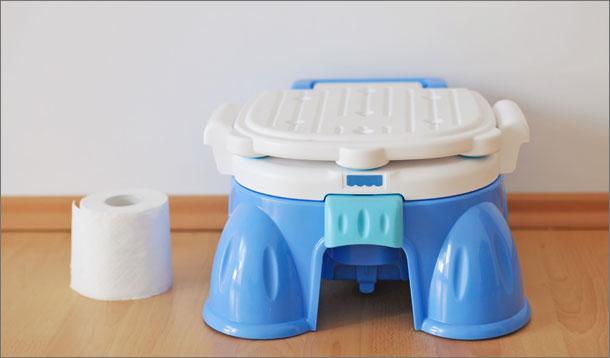
I’ve worked with children for 15 years -- first as a daycare teacher then as a supervisor -- and in that time, I’ve seen hundreds of parents potty train their children with amazing success. Unfortunately, I’ve also seen the opposite.
Here are some of the most common mistakes parents make when potty training their children, and some simple ways to avoid them:
![]() Not being consistent
Not being consistent
Kids require consistency when learning anything new and that includes potty training. Changing the rules as you go will confuse your child as to what’s important and what you expect. For example, if you offer a reward like a Smartie for using the potty one day but the next day you don’t (you forget, you run out or you change your mind about using rewards), your child may become frustrated and will not be able to follow through with the expectations you’ve set.
![]() Starting too early
Starting too early
Potty training is an exciting time for parents -- it means no more diaper changes and a more independent child. Still, rushing to potty train based solely on your timeline (for example, “I read somewhere that 18 months is a good time to start”) is a recipe for disaster. Children who are pressured into potty training too early will simply not succeed. This can result in frustration, stress and physical problems too, like constipation. Watch for signs of readiness --not just one sign, but most or all of them:
![]() Overreacting to accidents
Overreacting to accidents
Potty training is a learning process. Accidents will happen -- and that’s okay. It’s important not to overreact. For example: You feel sure that your child knows that she is supposed to tell you when she needs to pee -- and then one afternoon, she doesn’t, and she has an accident.
The wrong response: “You know you were supposed to tell me you had to pee! Why didn’t you? I’m disappointed in you!”
Even worse would be an actual punishment such as a time out or removal of a privilege.
The right response: “Don’t worry, honey. It’s okay. Let’s go get some dry pants and I’ll help you remember next time.”
This shows your child that she can trust you and that you want her to succeed. Keep potty training a positive experience at all costs; creating a negative experience can set you back days or weeks.
![]() Potty training during a stressful time
Potty training during a stressful time
I’ve seen many parents attempt to potty train their toddler in the month leading up to Baby No. 2’s arrival. In my experience, bad idea. Children are sensitive to change and because the experience needs to be positive and not rushed in order to work, it’s best to start during a fairly normal life period. Similarly, I’ve seen families try to potty train during a one-week vacation or over the Christmas holidays. When you are expecting the process to begin and end in a short period of time, you may pass that expectation along to the child, who will feel rushed and pressured, and therefore may not succeed.
![]() Not having a plan
Not having a plan
Before you begin any potty training at all, sit down with your partner or family and figure out your plan. Will you use rewards such as Smarties when your son pees in the toilet or just a hug? Will you bring your child to the washroom every 20 minutes or will you simply ask him every 20 minutes if he needs to go? Will potty training start at daycare or will you start at home -- or both at once? Will you use a potty, a seat attachment for the toilet, or both? There isn’t necessarily a right or wrong answer to any of these questions, but it’s important to answer them before you begin training. Children thrive and succeed with consistency, so keep the rules the same throughout the process to help guarantee success.